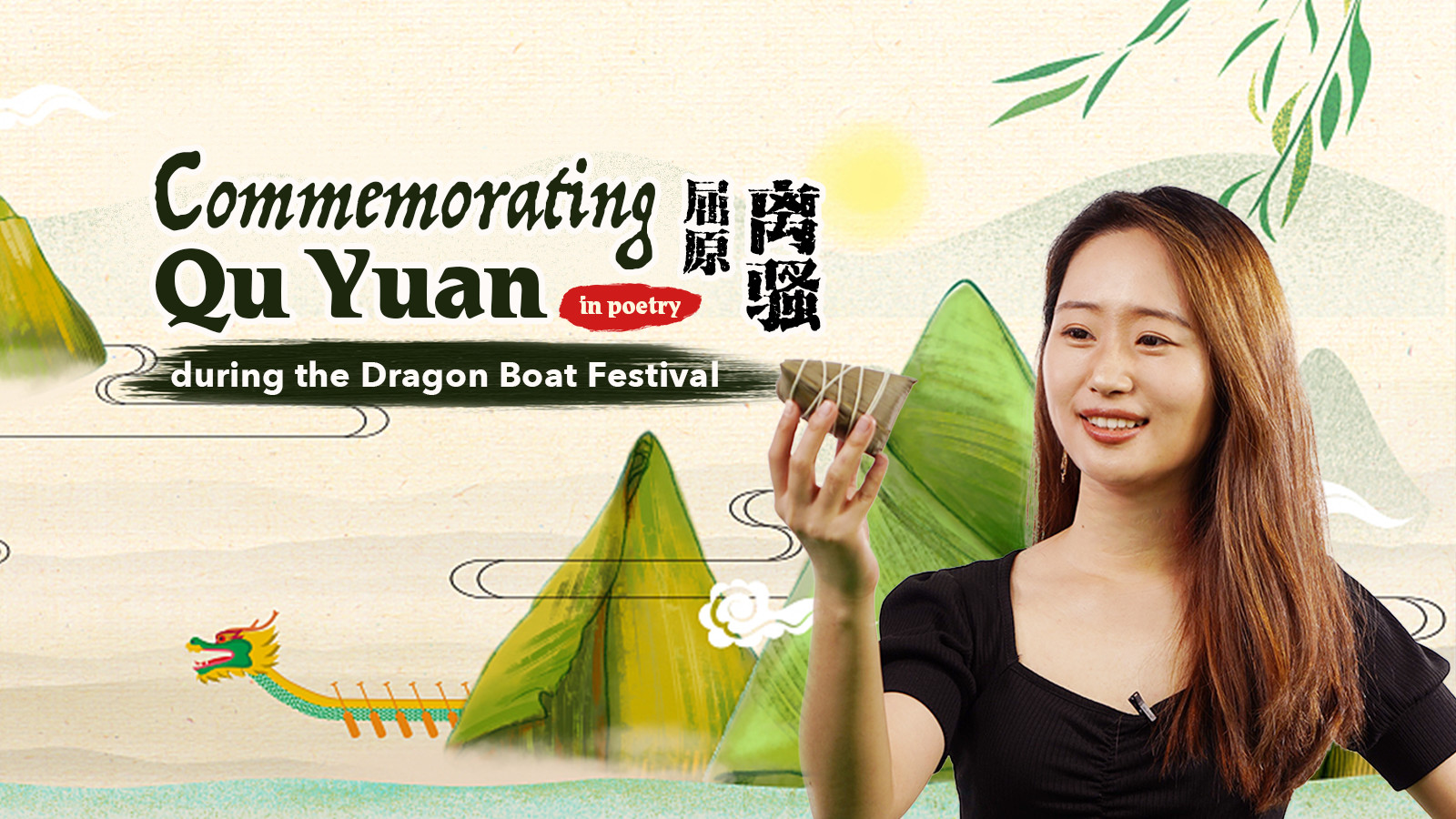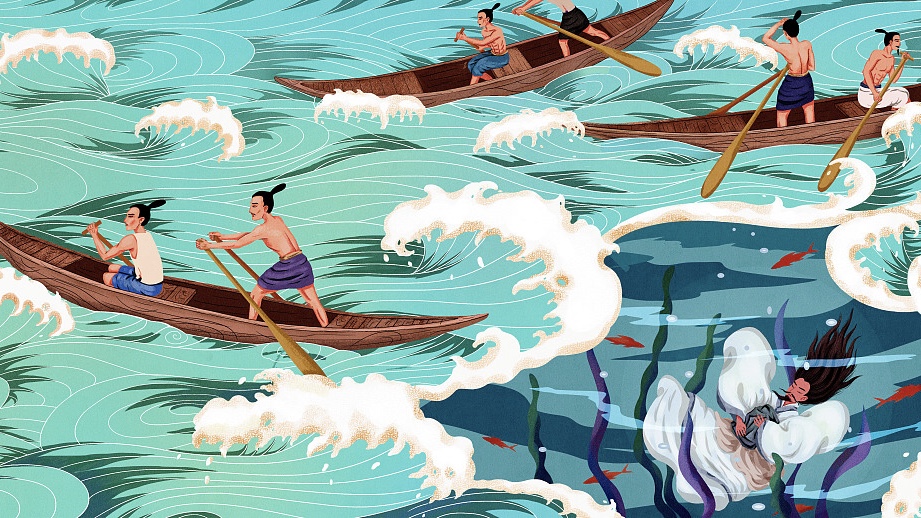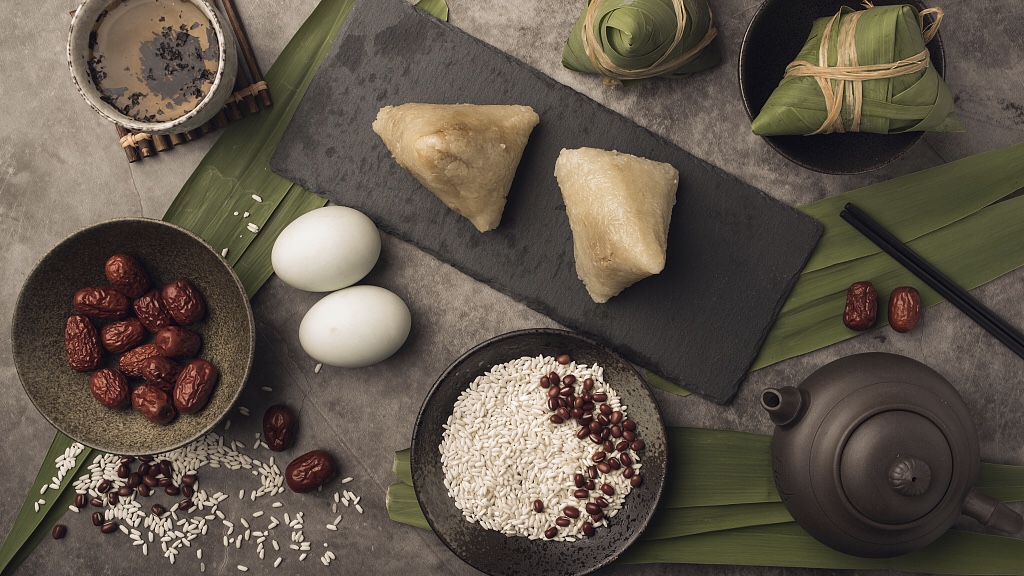03:33

lù màn màn qí xiū yuǎn xī, wú jiāng shàng xià ér qiú suǒ.
路漫漫其修远兮, 吾将上下而求索。(屈原《离骚》)
Long, long had been my road and far, far was the journey;
I would go up and down to seek my heart’s desire.
(Translated by David Hawkes, British sinologist and translator)
This is a famous line from the Chinese poem "Li Sao" or "Encountering Sorrow" written by poet Qu Yuan (340 B.C.-278 B.C.) during the Warring States period of ancient China. The line indicates the poet’s positive desire to pursue his dream amid obstacles and seeking self-perfection along the way.
As a traditional Chinese festival, the Dragon Boat Festival or Duanwu Festival, which falls on the fifth day of the fifth lunar month, commemorates Qu Yuan – a patriotic poet and a loyal official of the State of Chu during the Warring States period. He dedicated his whole life to assisting the king to build the State of Chu stronger. As an ancient literary giant, Qu Yuan is regarded as one of the most prominent figures of romanticism in Chinese literature. Best known for his poem "Li Sao" from the anthology "Chuci," Qu expresses his love and passion for his country, and the sadness and suffering of the ordinary people through numerous metaphors.

Qu Yuan (340 B.C.-278 B.C.), a patriotic poet and a loyal official of the State of Chu during the Warring States period. / VCG Photo
Qu Yuan (340 B.C.-278 B.C.), a patriotic poet and a loyal official of the State of Chu during the Warring States period. / VCG Photo
Other famous lines like:
wéi cǎo mù zhī líng luò xī, kǒnɡ měi rén zhī chí mù.
惟草木之零落兮,恐美人之迟暮。
And I thought how the trees and flowers were fading and falling;
And feared that my Fairest’s beauty would fade too.
(Translated by David Hawkes, British sinologist and translator)
Qu uses metaphors and association to compare the fading and falling of trees and flowers to the aging of people. Life is short, and nothing gold can stay. He wants to treasure time and fulfill his political aspirations, but also worries about the future of the State of Chu.
Upon hearing about the defeat of the State of Chu in 278 B.C., Qu Yuan in great despair committed suicide by drowning himself in the Miluo River, located on the eastern bank of Dongting Lake, the largest tributary of the Xiang River in central China’s Hunan Province.

When they heard of Qu Yuan's death, the local people rowed out on the river to search for his body. / VCG Photo
When they heard of Qu Yuan's death, the local people rowed out on the river to search for his body. / VCG Photo
When they heard of his death, the local people rowed out on the river to search for his body, but found nothing. In order to preserve his body, people paddled boats up and down the river, hitting the water with the paddles and beating drums to scare evil spirits and fish away. They also threw lumps of rice into the river to feed the fish, so that they would not eat Qu’s body.
Gradually, rowing boats developed into dragon boat racing and lumps of rice became sticky rice dumplings or zongzi in commemoration of the great patriot Qu Yuan. There are other traditions to keep out evil during the festival, like drinking realgar wine, wearing a perfume pouch and five-color silk, hanging plants such as Chinese moxa and calamus over doors and pasting paper cut-outs in windows.

Zongzi, or sticky rice dumplings is a traditional Chinese rice dish made of glutinous rice stuffed with different fillings and wrapped in bamboo leaves./ VCG Photo
Zongzi, or sticky rice dumplings is a traditional Chinese rice dish made of glutinous rice stuffed with different fillings and wrapped in bamboo leaves./ VCG Photo
Since 2008, the Dragon Boat Festival is not only a festival but also as a public holiday in China. In September 2009, UNESCO added the Dragon Boat Festival to the Intangible Cultural Heritage list, making it the first Chinese festival to receive the honor.
On-Camera Reporter: Zang Shijie
Scriptwriter: Zang Shijie
Filmed by Huang Yichang
Video Editor: Chen Shuxun
Animation: Xu Qianyun
Designer: Li Jingjie
Copy Editor: Matthew Arrington Watson
Chief Editor: Wang Xin, Lin Dongwei
Producer: Wen Yaru
Supervisor: Pang Xinhua